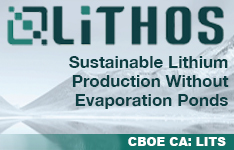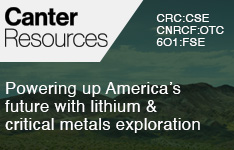When I spoke with Napodano for his interview at The Life Sciences Report he told me, almost as an afterthought, about an idea that had been particularly good to him and investors who follow his research. The story was about Acadia Pharmaceuticals (ACAD:NASDAQ), which was beaten down and forgotten after not one but two failures, including its small molecule, orally bioavailable serotonin 5-HT2A receptor antagonist, pimavanserin. Of course, Acadia faded from memory. However, on Nov. 27, 2012, pimavanserin met its primary and secondary endpoints in a phase 3 trial for Parkinson's disease psychosis (PDP), and the results were convincing. The stock doubled, and that turned out to be a good day for Napodano and his clientele. Better yet, investors have not shown any buyers' remorse, and the gains have held since that time, which is not always the case. The prospect of taking a pill once each day to ward off the incapacitating effects of PDP is compelling for patients, their stressed-out families and, of course, for investors, especially since there are no specific FDA-approved therapies on the market.
Of course I wanted to know how Napodano could venture into such counterintuitive territory, but it turns out there was no magic. It was just the shoe-leather, hardscrabble-type work that some analysts are compelled to do behind the scenes. "We looked at the original trial design for why it failed the first time," he says. "This trial has been going on for almost two years. It's been a long process." But what's the next catalyst? "Acadia now needs to do one more phase 3 trial, and then it can file for approval," he says. "This is the kind of thing that big pharma is interested in right now."
Napodano has another theme. He likes licensing deals because they bring in nondilutive cash without associated expenses or costs of sales. He points to Depomed (DEPO:NASDAQ) as a classic example. "Depomed does an excellent job of out-licensing its extended-release technology, and it has excellent patent protection," he says. He's referring to the company's Acuform know-how and intellectual property, which is licensed out and also used internally. "It turns its technology into an ATM machine, which has allowed the company to really push its pipeline forward without having to go back to the market and constantly raise cash," he says.
The company has two of its own products on the market. The first is Gralise (gabapentin), its extended-release tablets for the management of post-herpetic neuralgia (PHN), which is a very painful condition that can follow an occurrence of herpes zoster (shingles). PHN can also occur without a prior attack of shingles. There is competition from generics and branded products, "But, it's also a pretty large market," says Napodano. "The indications for gabapentin are numerous." The same product, under the name Serada, is in a phase 3 trial for menopausal hot flashes. The value driver for the hot-flashes indication is that women and their physicians are motivated to move away from hormone replacement therapies, which pose risks that have been widely publicized. Again, the extended-release formulation is designed for longer relief and potentially fewer off-target effects. Sales of Gralise in Q3/12 came in at $4.75M, just above Napodano's estimates.
Depomed's other marketed product, Zipsor (diclofenac potassium), is a liquid-filled capsule of low-dose diclofenac, which is used in the management of acute pain. Zipsor is non-narcotic, and its Q3/12 sales doubled Napodano's estimates, coming in at nearly $5 million ($5M).
Royalties are sometimes thought of as having 100% margins. During Q3/12, Depomed's licensing revenues came in at $11.4M. The company has open licenses with Merck, Johnson & Johnson's Janssen Pharmaceuticals subsidiary, Boehringer Ingelheim, Covidien and Ironwood, which paid Depomed more than $20M during 2011.
To read the entire interview with Jason Napodano, visit www.thelifesciencesreport.com.
DISCLOSURE:
Author George S. Mack personally and/or his family own shares of the following companies mentioned in this interview: None.
Jason Napodano: I own none of the companies mentioned and Zacks does no trading or banking to speak of.
From time to time, Streetwise Reports LLC and its directors, officers, employees or members of their families, as well as persons interviewed for articles on the site, may have a long or short position in securities mentioned and may make purchases and/or sales of those securities in the open market or otherwise. Streetwise Reports does not accept stock in exchange for services or render general or specific investment advice and do not endorse or recommend the business, products, services or securities of any industry or company mentioned in this report. Streetwise Reports LLC does not guarantee the accuracy or thoroughness of the information reported.



































